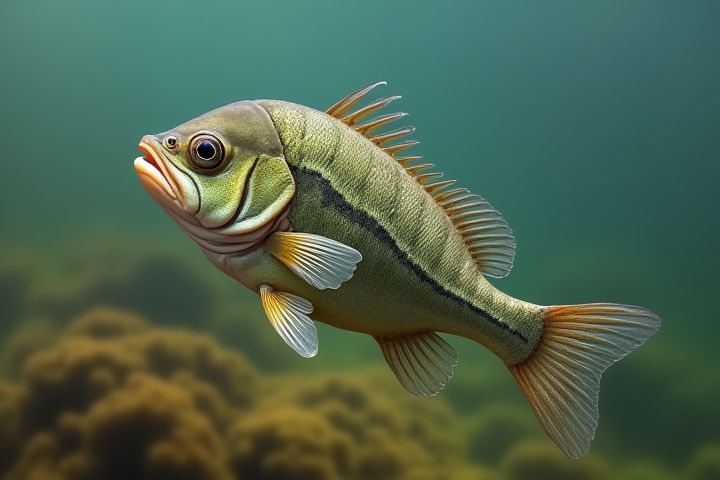
Nigeria possesses one of the largest fishery sectors in Africa, offering a diverse range of freshwater and marine fish species. The country's coastline stretches over 800 kilometers along the Atlantic Ocean, providing access to rich fishing grounds that are vital for sustenance and economic growth. Inland water bodies, such as the Niger River and numerous lakes, support substantial aquaculture initiatives that contribute significantly to local livelihoods. Sustainable fishing practices are increasingly emphasized to ensure the preservation of fish stocks and aquatic ecosystems. With a growing population, enhancing the fishery sector can play a crucial role in improving food security and promoting economic development in Nigeria.
Vital source of livelihood
The fishery sector in Nigeria serves as a vital source of livelihood for millions, contributing significantly to the national economy and food security. Nigeria's extensive water resources, including rivers, lakes, and coastal areas, host a diverse range of fish species, making the industry crucial for both local consumption and export. Small-scale fishing practices predominately engage rural communities, providing employment and enhancing income levels. Sustainable management of these fisheries is essential to ensure the longevity of fish stocks and support the 6 million people that rely on them for their daily survival.
Major part of agriculture sector
Nigeria's fisheries sector plays a crucial role in the nation's agricultural landscape, contributing significantly to food security and economic growth. With a diverse range of fish species available, including tilapia, catfish, and mackerel, both freshwater and marine fishing practices are prevalent. The industry supports millions of livelihoods, from small-scale fishermen to large commercial enterprises, while also addressing the nutritional needs of the growing population. Sustainable practices and regulatory measures are increasingly being emphasized to ensure the long-term viability of fishery resources.
High biodiversity in waters
Nigeria's fishery industry thrives due to its high biodiversity in both freshwater and marine ecosystems, hosting over 200 fish species. Key habitats include the Niger River, coastal lagoons, and the Atlantic Ocean, which support various aquatic life forms. Sustainable fishing practices are essential to maintain this biodiversity, ensuring the preservation of endemic species like the Nigerian Tilapia and the endangered manatee. Engaging in responsible fishing not only bolsters local economies but also contributes to the overall health of Nigeria's aquatic environments.
Significant aquaculture expansion
Nigerian fisheries are witnessing significant growth through the expansion of aquaculture, which plays a crucial role in increasing fish production. This sector, including tilapia and catfish farming, aims to improve food security and provide livelihoods for local communities. Government initiatives and private investments are promoting sustainable practices, enhancing the efficiency of fish farming operations. With growing demand for affordable protein sources, aquaculture in Nigeria presents lucrative opportunities for investors and entrepreneurs in the industry.
Overfishing concerns
Nigeria's fishery sector grapples with significant overfishing challenges, resulting in dwindling fish stocks and threatening aquatic biodiversity. The rise in illegal fishing practices and unregulated fishing activities exacerbates this issue, affecting both local livelihoods and food security. Stakeholders are increasingly advocating for sustainable fishing practices and effective management strategies to preserve fish populations. You can contribute to conservation efforts by supporting local initiatives aimed at responsible fishing and habitat protection.
Need for sustainable practices
The fishery sector in Nigeria is increasingly emphasizing sustainable practices to combat overfishing and preserve aquatic ecosystems. Key initiatives include implementing aquaculture techniques that promote responsible fish farming, enhancing local fish populations, and reducing environmental impact. Local communities are encouraged to engage in sustainable fishing methods, which not only help maintain biodiversity but also support food security and local economies. Investing in education about sustainable fisheries management can empower you to contribute positively to this vital industry.
Government initiatives for growth
Nigerian fisheries have seen significant growth due to government initiatives aimed at boosting sustainable aquaculture and enhancing fish production. Programs such as the National Fish Production and Advancement Programme (NFPAP) promote technological advancements and provide financial support to local fish farmers. The government's investments in infrastructure, training, and research are designed to address challenges like overfishing and resource management. By prioritizing these initiatives, Nigeria is positioned to improve food security and economic stability within the fishing sector.
Fisheries contribute to GDP
The fishery sector in Nigeria significantly contributes to the national GDP, reflecting its vital role in the economy. Over 1.2 million tons of fish are produced annually, supporting local livelihoods and enhancing food security. Aquaculture and artisanal fishing are key components, with regions like Lagos and Akwa Ibom leading in production. Investing in sustainable fishing practices can increase yield and ensure the long-term health of aquatic ecosystems.
Source of protein for population
Fishery in Nigeria serves as a crucial source of protein for the country's growing population, significantly contributing to food security and nutritional needs. The industry includes both capture fisheries and aquaculture, with species like tilapia, catfish, and snapper being prominent in local markets. Coastal regions and rivers are vital habitats for various fish species, supporting livelihoods for many communities engaged in fishing activities. Sustainable fishing practices are increasingly important to ensure long-term viability and to meet the rising demand for fish as a nutritious dietary staple.
Challenges from climate change
Fishery in Nigeria is increasingly facing challenges due to climate change, affecting both marine and freshwater resources. Rising temperatures and altered rainfall patterns disrupt breeding cycles and habitat availability for various fish species. Coastal erosion and pollution exacerbate these issues, threatening the livelihoods of local fishing communities. To adapt, sustainable practices and climate-resilient strategies are essential for protecting Nigeria's vital aquaculture and ensuring food security for its growing population.
